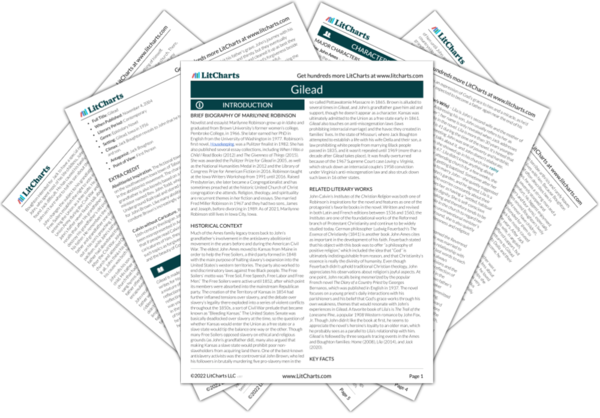Because John focuses on father-son relationships when writing to his son, most of the women in his life, especially his mother, appear more in the background. But even though his father’s company is a sweeter memory for him, John remembers that his mother doted on him, taking pains to preserve his health. The health care book being “more particular than Leviticus” is a humorous allusion to the Old Testament book, which contains detailed laws that the ancient Israelite priests, or Levites, must follow.
